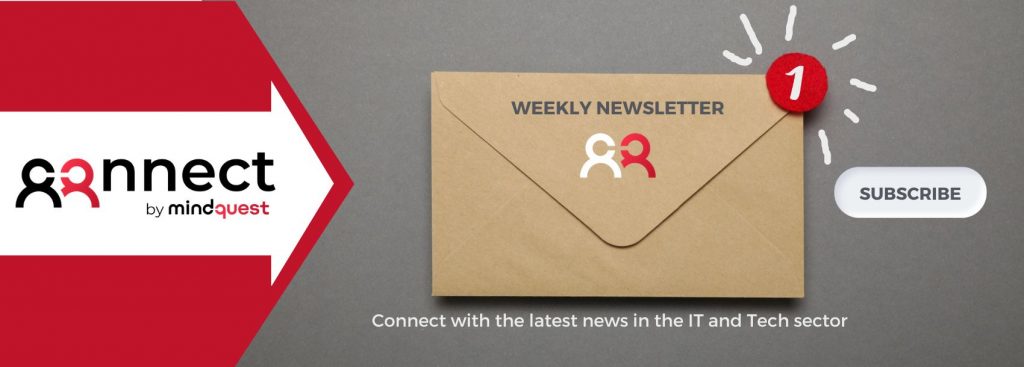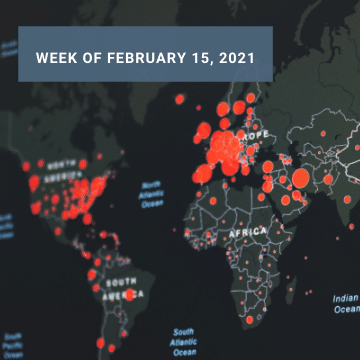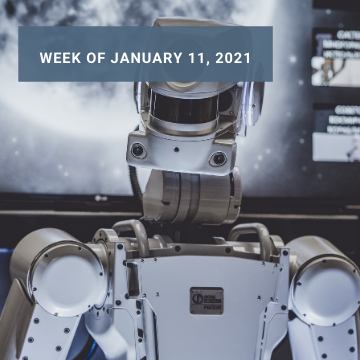With artificial intelligence evolving so rapidly, it can be hard to keep up with new developments, best practices and the industry’s overall state of the art. For this reason, we at Mindquest suggest you this list of top AI experts in the UK that will help you stay in the know and future-proof your career in AI.
You can also read 5 Online Courses to Get You Up-To-Speed with AI and AI expert: Job Description
Need to start a new permanent or freelance assignment? Join Mindquest and get access to our job offers.

Top AI experts in the UK to follow
As the IT environment is constantly evolving, it is crucial, if not necessary, to connect with the brightest minds to keep up with innovation. In other words, the more contacts you get, the more likely you are to solve IT challenges. Therefore, we at Mindquest to provide you with a list of the AI experts in the uk to follow.
Disover A Career in Data Science: Unlocking The Power of Data with AI
Tabitha Goldstaub
To start, Tabitha, board member of Luminate, is the co-founder of CogX, the chair of the UK Government’s AI Council and an advisor for The Alan Turing Institute. She is also the author of How To Talk To Robots: A Girl’s Guide to a Future Dominated by AI.
Rob McCargow
To continue, Rob is the director of AI at PwC UK and a champion for the responsible use of technology and AI. He is also an advisor for the IEEE and the UK’s All-Party Parliamentary Group on AI and a TEDx speaker.
Sarah Porter
Then, Sarah is the founder and CEO of InspiredMinds, a global community and strategy group focusing on the use and development of AI for good in line with the UN’s sustainable development goals.
Yarin Gal
Let’s go on with Yarin, an Associate Professor of Machine Learning at the University of Oxford’s Applied and Theoretical Machine Learning Group, helping produce groundbreaking work like this set of Bayesian Deep Learning benchmarks.
Elena Sinel
Elena, on the other hand, is the founder and CEO of Teens in Ai, a global initiative launched at the UN’s 2018 AI for Good Global Summit and that seeks to inspire the next generations of ethical AI researchers and practitioners.

Danilo Rezende
Danilo, then, is a Senior Staff Researcher and lead of the Generative Models and Inference group at DeepMind, London. His research focuses on scalable inference and generative models for decision-making and hard science problems.
In this post, we discuss AI in the workplace with our Chief Digital Officer, Felix Lemaignent.
Allison Gardner
Next, recently MP for Stoke-on-Trent South at UK Parliament, a lecturer and data science apprenticeships program director at Keele University, Dr Allison Gardner is co-founder of Women Leading in AI, which brings together AI and business leaders to discuss the future of AI.
Edward Grefenstette
Further, Edward is Director of Research for Google DeepMind, he has been a Scientist and RL Area Lead at Facebook AI (FAIR) and an Honorary Professor at the Deciding, Acting, and Reasoning with Knowledge (DARK) Lab at the UCL Centre for AI.
Wendy Hall
Then there is Wendy Hall, a Dame Commander of the British Empire (DBE) and a champion for UK AI skills and women in science. She is Chair of the Ada Lovelace Institute and joined the BT Technology Advisory board earlier this year.
Ankur Handa
Last but but not least, Ankur is a Robotics Research Scientist at NVIDIA AI and a Research Scientist at OpenAI working at the intersection of computer vision and control for robotics. He did a post-doc at Cambridge University and has a PhD from Imperial College London.
Do you have any other AI experts in the UK who should be featured in this or future lists? Shoot us an email.
Also discover our articles 10 of the Best Software Developers in the UK to Follow Online















